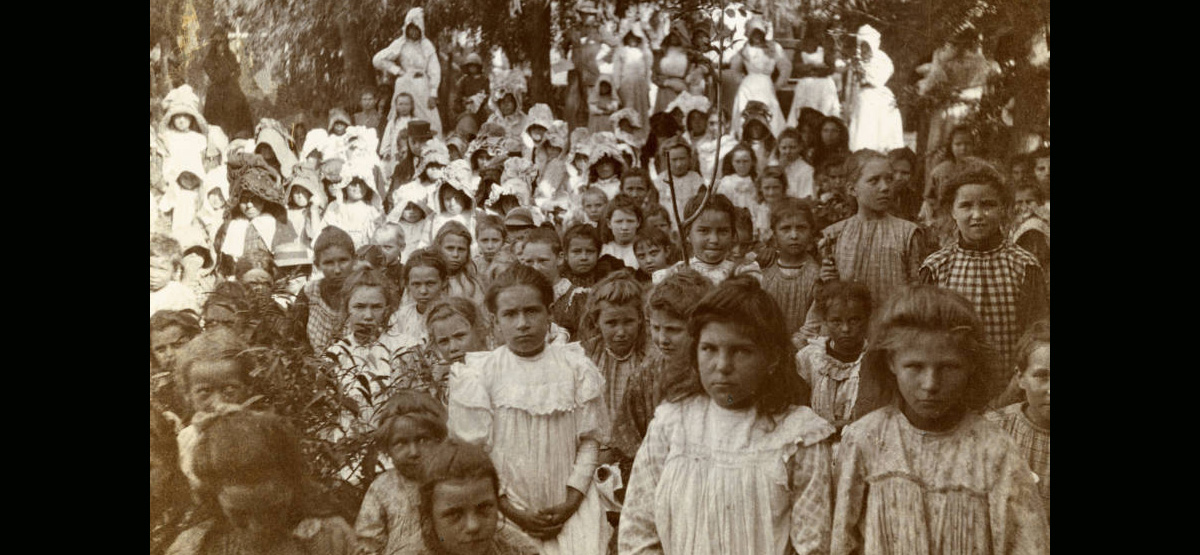‘War Without Glamour’
An international exhibition dedicated to the life and work of Emily Hobhouse
The University welcomes a major touring exhibition on the human rights activist Emily Hobhouse who campaigned against the suffering of Boer women and children in British concentration camps in the South African War and was later vilified for her attempts to humanise the Germans who suffered in World War One.
BRANDED a traitor to Britain during the South African War and accused of being hoodwinked by Germany during the Great War, the redoubtable campaigner and pacifist Emily Hobhouse was one of the most controversial women of her time. Now, her legacy, which includes iconic status in South Africa, has been explored by a research team that includes University of Huddersfield historian Dr Rebecca Gill.
One of the outcomes of the international project – awarded funding of £400,000 by the Arts and Humanities Research Council – is an exhibition that tells the story of Emily Hobhouse’s life and times, copiously illustrated by reproductions of items such as letters, diaries and paintings from her archive. It has made its public debut at the University of Huddersfield’s Oastler Building, where it remains on display until 28 August. Then it moves on to Hull History Centre and other venues around the UK and has also been seen in South Africa.
The Emily Hobhouse Letters project has a detailed website that provides information of exhibition venues and the range of articles and presentations that have been produced by the research team, which includes Dr Helen Dampier of Leeds Beckett University and Cornelis Muller of the University of the Free State in South Africa. Among the others taking part are Robert Piggott, who is completing his PhD with the History department at the University of Huddersfield.
Dr Gill has a research speciality in the history of humanitarian organisations, and this led her to the work and activism of Emily Hobhouse between 1899 – the outbreak of the South African War, which brought her to prominence – and her death in 1926. The exhibition states that Hobhouse was “committed to direct action and acts of personal conciliation in the face of war”.
She was widely reviled in Britain when she exposed the abject condition of Boer women and children in British concentration camps, but her campaigning led to improved conditions and although now largely forgotten in her native country, she remains widely commemorated in South Africa.
In 1902, she published The Brunt of War and Where It Fell, and firmly believed that women were the primary victims of war. An ardent campaigner for female suffrage, she believed that war would be abolished once women achieved political representation.
In the years following the South African War, Hobhouse witnessed the ruin of the rural Boer economy – the exhibition includes reproductions of three watercolour paintings depicting this – and she set up a Home Industries Scheme that instructed women and girls in crafts such as spinning and weaving.
The exhibition acknowledges that black Africans were sidelined by Emily Hobhouse, and she later became an iconic figure for the National Party that introduced apartheid in 1948, long after her death.
Hobhouse – World War One
During the First World War, Hobhouse reported on conditions in German-occupied Belgium and was vilified for her attempts to humanise the Germans, with the accusation that she had been hoodwinked by them. After the war, Hobhouse attempted to counter famine in Germany by establishing school feeding schemes, backed by the newly-formed Save the Children Fund. Her work was also supported by influential Quakers such as members of the Rowntree and Fry families.
The travelling exhibition is titled War Without Glamour, taken from a book by Emily Hobhouse posthumously-published in 1927, a year after her death. It was collection of 31 women’s testimonies, intended as evidence to the world at large of how war acts on non-combatants.
The exhibition organisers call for a re-assessment of Emily Hobhouse’s achievements and for her legacy to be confronted, stating that: “War Without Glamour poses questions about the politics of public commemoration, the crafting of national traditions and the purposes of eye-witness testimony, not least in post-conflict situations. These questions remain relevant today.”
More stories
The people of Huddersfield, always ready to help
Led by Dr Rebecca Gill, a group of historians have examined Huddersfield’s humanitarian past
Holocaust Centre in the National Lottery Awards
The Holocaust Exhibition and Learning Centre has been selected in the Best Heritage Project category
Remembering the past to change the future
The Holocaust Exhibition and Learning Centre, a finalists in the 25th Birthday National Lottery Awards in the Best Heritage Project category

